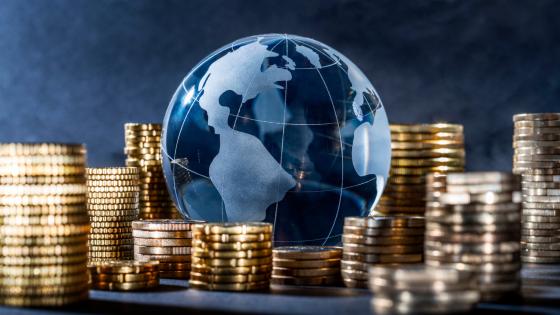“Blame foreigners for domestic woe” is the sad but unsurprising cardinal rule of politics, followed by even the most ardent internationalist. After seven years of a consumption binge in the US, evidenced by a negative personal savings rates, excessive leverage, historically high employment levels and record international deficits, commentators in the world's largest economy did not conclude what every macroeconomic model indicated – that US fiscal and monetary policy were too loose. Instead, in a manner reminiscent of the Dreyfus Affair, China is being convicted of manipulating its exchange rate and Asia for saving too much.
Doing the math
A favourite, if annoying, American business phrase during the boom years was "do the math". Doing the math reveals that changing China's exchange rate would change very little. Let us imagine that as a result of a jump in the value of the yuan, China's $175bn trade surplus were to disappear. (Incidentally it is far from clear that this would be the result given that this by itself will not shift savings-investment imbalances.) If China were no longer to run a trade surplus, how much would that boost global GDP?
By not much more than a rounding error or 0.25% of global GDP. In market prices, the Chinese economy is one quarter of the US economy and at the peak of the US trade deficit, China's surplus was less than a third of it. David may have toppled Goliath, but he could not carry him.
Fixed and floating manipulation
China held to the same exchange rate peg to the dollar for ten years up to 2005. Under a fixed exchange rate, a country only develops increasing trade surpluses as a result of improving price competitiveness. Of course, for your average American voter familiar with floating currencies, the whole idea of a fixed exchange rate smells of manipulation, but in fact it is easier to "manipulate" a floating exchange rate than a fixed one.
The US will deliberately pursue a policy of a loose monetary policy, partly in order for the dollar to weaken and US exports to grow at the expense of others. Many Europeans would like their central banks to follow a similar path.
This US policy was precisely the kind of beggar-thy-neighbour currency manipulation the IMF was set up to avoid. Instead the IMF is questioning whether a pegged exchange rate is manipulative. Welcome to doublespeak.
Symptoms of a manipulated currency
The principal way to "manipulate" a fixed exchange rate is to use high interest rates and fiscal policy to depress the non-tradeables sector to such an extent that currency inflows from the export surplus do not feed domestic inflation. This would be a form of economic cannibalism that few countries would wish on their citizens – sacrificing the domestic service sector in order to feed the export sector. It would be associated with high interest rates, low inflation, and a domestic service sector in depression as the export sector grew.
Instead China boasts moderate to rising interest rates, rising goods inflation and potential asset price inflation, overheating, and record economic growth that is not confined to the export sector.
China was pushed off its fixed exchange rate in 2005 by pressure from the US Congress and has pursued a crawling appreciation since, but this has only served to worsen financial imbalances by attracting an additional US$100bn of hot money inflows per year as investors have become convinced the Chinese currency is a one-way bet.
The "savings glut" myth
The notion that the world was suffering from a savings glut, that would have pulled us all into recession were it not for America's selfless consumption, is also as deficient in arithmetic as it is self-serving.
You cannot save yourself into boom. There is no economic model where excess savings trigger a period of the most rapid and widespread economic growth the world economy has seen. Repressed consumption would lead to a period of slump, at best offset by US deficits. But all it would take to deliver precisely the kind of boom-bust cycle we did live through would be loose fiscal, monetary and regulatory policy in the US and elsewhere, fueling a consumption boom in the world's largest economy that would necessarily lead to surpluses in a swathe of consumer goods and commodity exporters, irrespective of their currency regime, like Germany and Chile.
Economics and politics
We have been here before. Back in the mid-1980s, Detroit blamed its woes not on the inferior quality of American cars, their gas guzzling, or the fact that the Japanese prefer not to carry all their belongings in the back or to have the steering wheel on the left. They blamed the yen-dollar exchange rate.
Political pressure pushed the yen up by more than the 27% being sought today by the US Congress for the yuan. It did as little to save Detroit then as a rise in the yuan would do today.
China's exchange rate has far more to do with national politics than international economics, which is one of the reasons why the US Treasury's assessment of whether China is guilty of currency manipulation may be postponed as a quid pro quo for progress in areas of mutual diplomatic concern between the two countries.



